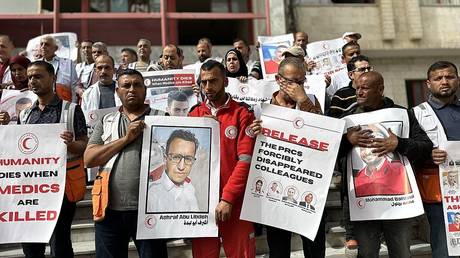
Recovered Covid-19 patients showed significant antibody responses after just a single mRNA vaccine dose but apparently received little additional benefit following their second dose, promising new research has found.
Researchers led by E. John Wherry, PhD at the Penn Institute of Immunology took blood samples from 44 healthy individuals who received either the BioNTech/Pfizer or Moderna mRNA Covid-19 vaccine, both of which employ mRNA technology, 11 of whom had a prior Covid-19 infections.
Blood samples were taken at four stages both before and after receipt of the vaccines and the researchers noted something peculiar in the results; the Covid-free vaccine recipients, called Covid naïve, did not boast a full immune response until after their second dose but curiously, those previously-infected showed nearly full immune response after just one dose.
“These results are encouraging for both short- and long-term vaccine efficacy, and this adds to our understanding of the mRNA vaccine immune response through the analysis of memory B cells,” said senior author Wherry.
Response to vaccines in humans is twofold: rapid response in the form of antibodies, and longer-term immunity, courtesy of memory B cells, which profile intruders so the immune system knows to fight them off if they ever show up again in the future.
This latest study highlights differences in memory B cell responses in recovered Covid-19 patients as compared to the Covid naive.
“Memory B cells are a strong predictor of future antibody responses,” Wherry explained, adding that proper monitoring of memory B cell responses will play an important role in longer-term pandemic response and management, especially in the face of new mutations and variants.
The results suggest that only a single dose of the mRNA vaccines may be required to give recovered patients the necessary protection by triggering a maximal immune response from both antibodies and memory B cells, potentially freeing up supplies at some point in the future, amid a worldwide crunch.
The researchers noted that two doses were required to achieve full immune response among the covid-naive patients and this held true in analysis of antibodies against different variants of the coronavirus.
“Everyone has good responses to the vaccines. They work to protect people against Covid-19. But for those who may be worried about side effects, they are not necessarily a bad thing–they may actually be an indicator of an even better immune response,” Wherry said.
Larger-scale studies are continuing with a view to determining the best course of action in terms of dosage numbers, overall immune response and lasting efficacy over time.
Think your friends would be interested? Share this story!




